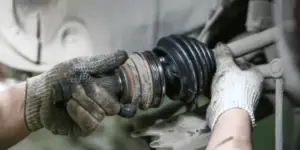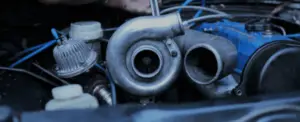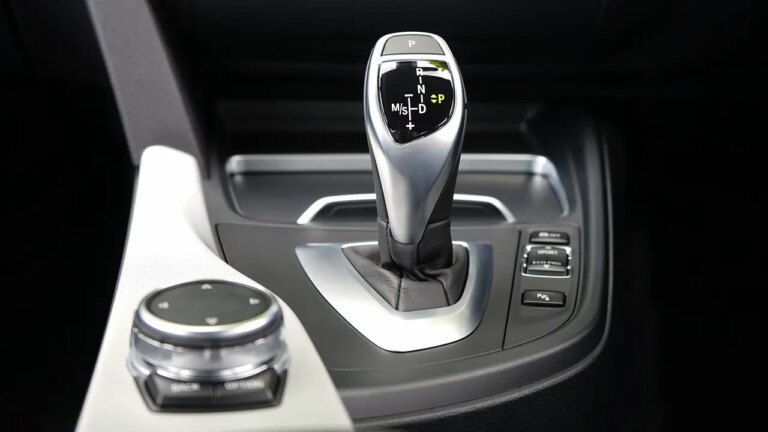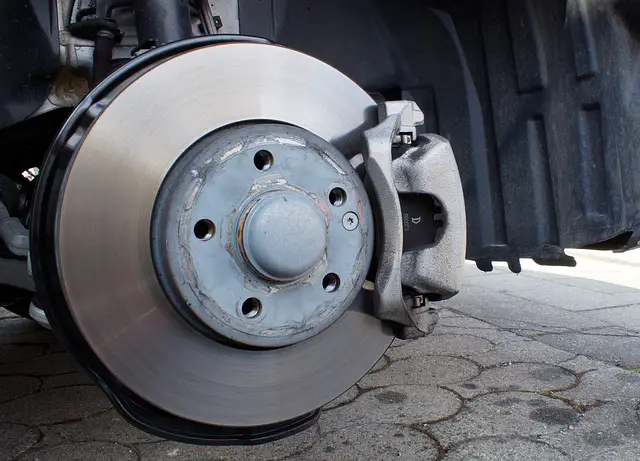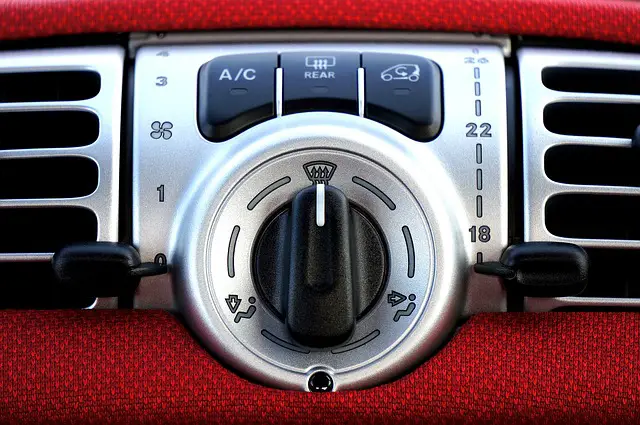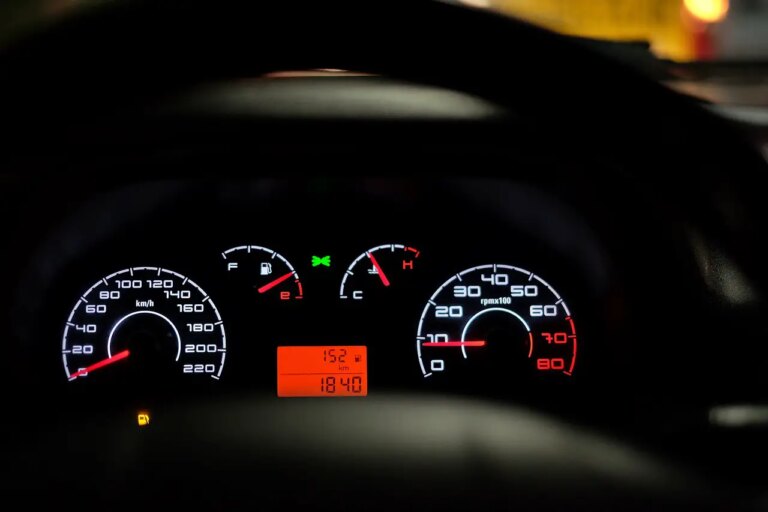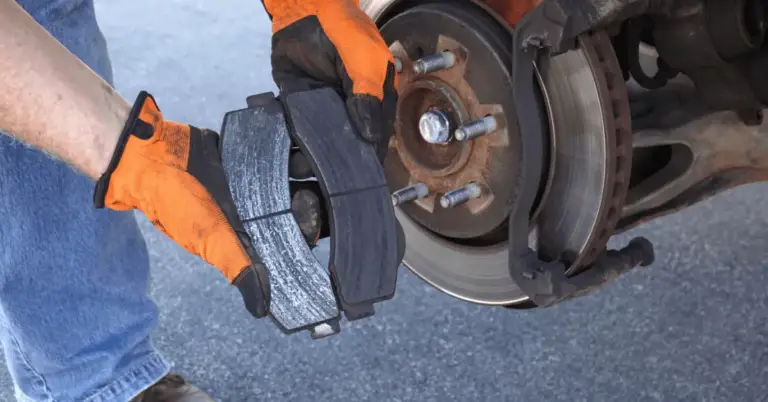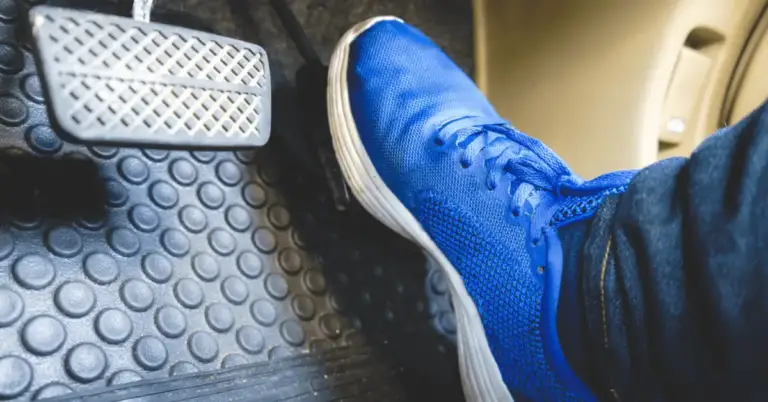This sound can be alarming to drivers who worry that they may do real damage to their cars.
There are five main and an additional four lesser causes that may be why you hear grinding when accelerating.
Here we’ll explore what they are, the fixes, and the costs involved. We’ll start with the most common causes and end with the least likely ones.
Briefly though.
The five main causes are a bad wheel bearing, a damaged CV joint, issues with the transmission, problems with the differential, and a worn motor mount.
Here’s Why You Hear A Grinding Sound When You Accelerate
Likely Causes
Cause 1. Worn Wheel Bearings
Wheel bearings are a circle of ball bearings encased in a ring. Their job is to allow the smooth and rapid movement of the wheel with minimum friction.
The heat caused by the friction can cause the grease that the bearings sit in to dry out. When this happens, the bearings start to rub together or on the metal case.
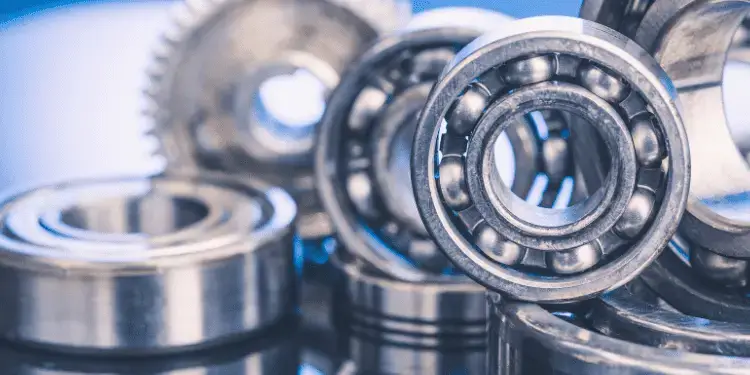
As you accelerate, the wheel spins faster, so the wheel bearings have to spin faster. The grinding noise gets louder as the bad bearings work harder.
You should hear the grinding to a lesser degree at low speeds and also when you turn the steering wheel.
How To Fix
To see if the wheel bearings are the cause, you need to lift the car and spin the wheel with your hands. Listen out for a grinding noise. If you hear it, then wheel bearings are the cause.
This is a job some DIY car enthusiasts can do themselves, as shown in this video. But most people will take their car to a mechanic to be fixed.
Cost of The Fix
Expect to pay between $200 and $350 for the wheel bearings to be replaced on one wheel. The parts cost between $80 and $120, and the labor costs are in the range of $120 to $220 depending on the make and model of the car.
Cause 2. Bad CV Joint
CV joints attach wheels to the transmission of the car. They are very hard-wearing and can easily last 100,000 miles without any problems. When they fail, it’s usually caused by fracturing the plastic boot covering the joint. This allows dirt and moisture in and allows the grease within it to drain away.
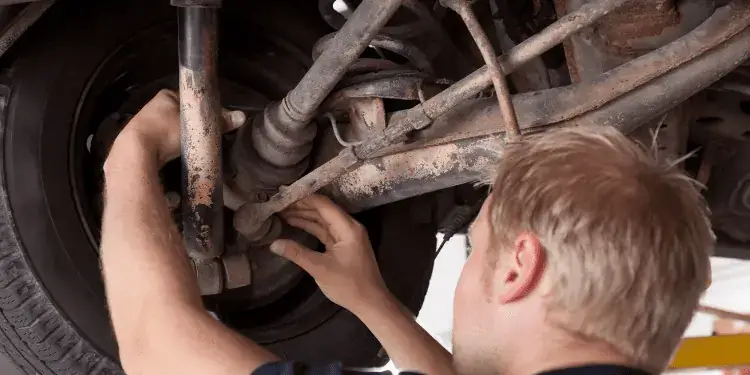
The grinding noise is often loudest when the steering wheel is turned but can also be noticeable under rapid acceleration. If left, it can fail completely, resulting in the wheel not receiving power from the transmission and the car not moving.
How To Fix
Unlike the check for wheel bearings, to check the CV joints, you might have to get underneath the car and inspect them.
How To Do CV Boot Replacement Without Removing The Axle
Most cars have four CV joints – all-wheel drive cars have eight- and are positioned on the axle, providing power to the wheels. A torn or worn rubber boot is a sure sign that the CV joint is causing the grinding.
Most people will take their car to a mechanic to replace a CV joint as it’s more involved and physical. A competent DIY’er can manage to do the job, though.
To replace the CV joint, you’ll first have to remove the wheel and get underneath the car to remove the tire rod assembly.
This’ll involve removing tires, bolts, and clips and a lot of wiggling and maneuvering of the assembly. This video goes into it in a lot more detail.
Cost of The Fix
You’ll pay between $100 to $250 for a single CV joint part and another $150 to $250 for labor costs. In total, expect to pay between $250 to $500 for a CV joint replacement.
Cause 3. Worn Motor Mounts
Engine or motor mounts secure your engine to your car’s subframe. Under heavy acceleration, the engine is forced to work harder and vibrates – this is normal.
Usually, when the mounts are in good condition, they can hold the engine in place, but when worn, the vibration can be sent through the subframe.
Often, stepping on the gas while turning left or right will put a damaged mount under more stress than driving in a straight line.
When they are close to failing, you might notice a grinding noise caused by the mount rubbing. If you’ve got one worn or cracked mount, the others may be worn too.
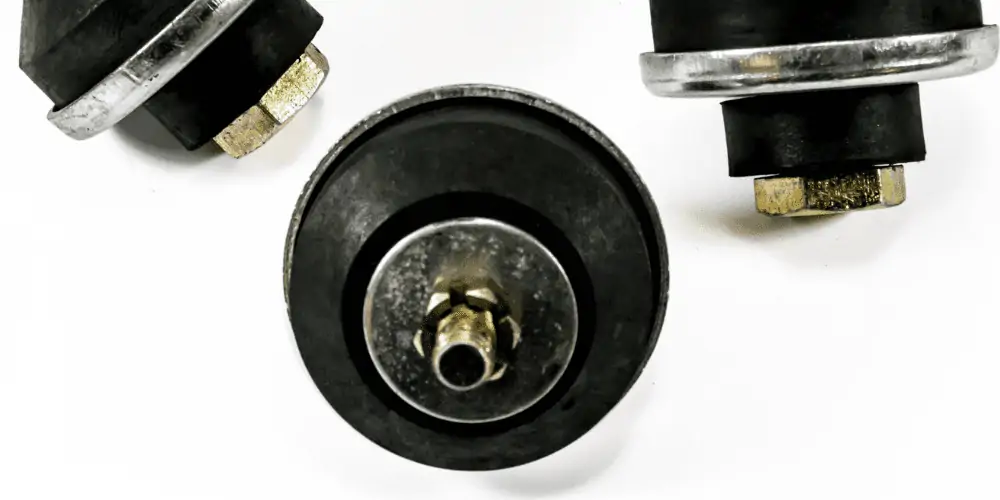
Some cars have two, while others have three or four mounts. The number of motor mounts varies from car to car, as does their position.
How To Fix
At the very least, you’ll need to support the engine with a jack before removing any worn mounts.
Once you’ve done this, the task of replacing is straightforward. It’s a case of unbolting the mount and replacing it with the new mount.
Cost of The Fix
A single engine mount part costs from $100 to $300. Allow an extra $125 to $200 in labor costs depending on the make and model of your vehicle.
Cause 4. Issues with the Differential
Firstly what is it?
The differential allows different wheels on the same axle to rotate at different speeds.
This is needed when a car turns left or right as, during this maneuver, one wheel has to travel less distance than the other. It’s a clever mechanism that consists of different-sized gears.
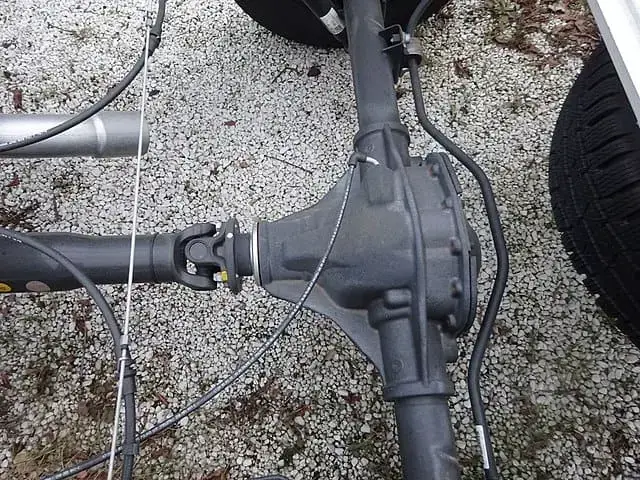
When the differential goes bad, it can make a range of noises at various speeds. A grinding noise upon acceleration is normally due to a worn ring and pinion gear.
How To Fix
Often, just a top-up of the differential fluid will fix the noise, but if that doesn’t work, a more complicated, time-consuming, and complicated repair will be needed.
This isn’t something a hobby car enthusiast normally takes s on. It can be done, though, as this video shows.
Cost of The Fix
Ring and pinion sets cost in the region of $150, but labor costs can be high and range from $300 to $700 depending on the make and model of the car.
Cause 5. Transmission Problems
This is potentially the most expensive reason for the grinding noise when you push down the gas pedal.
Before we look at what may have failed mechanically, it’s always best to ensure enough transmission fluid in the system. If it’s low, top up the level and go for a tentative drive.
Hopefully, that’s fixed the problem. If not, then it looks more serious.
When the transmission goes wrong, its gears are often worn or have become slightly out of alignment.
When cruising at a set speed, your car remains in one gear, but the gear changes happen quickly under acceleration. This is when you’ll notice a problem more easily. You may hear it when you’re in a specific gear, or it may happen in all the gears.
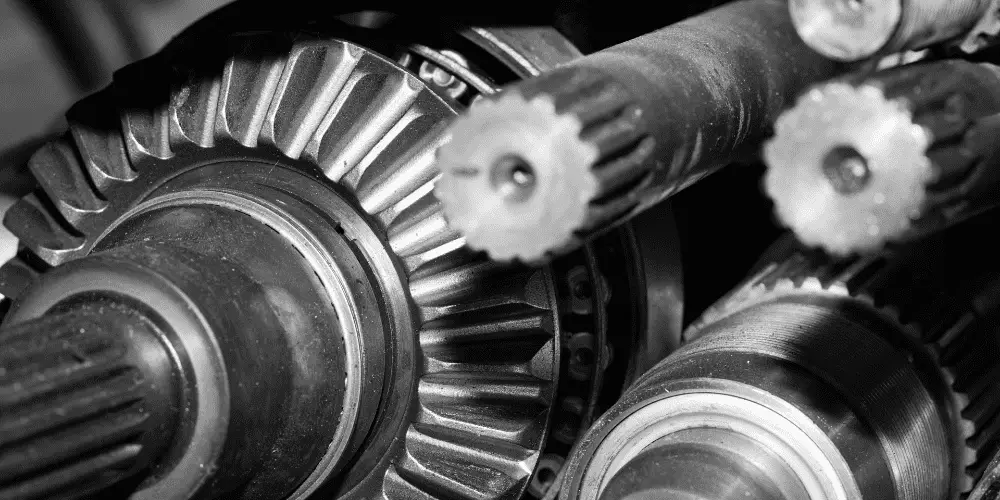
Either way, this is a repair that can’t be delayed—the more gear changes you do, the more damage you’ll do to the transmission.
How To Fix
This is a job for a qualified mechanic. Some don’t feel comfortable doing this work and refer it to a transmission specialist instead.
Cost of The Fix
You won’t know exactly what work needs to be done until the transmission is inspected. The price can cost thousands of dollars as the labor hours needed to complete the job can build up.
Unlikely Causes
Cause 6 – Alternator
Alternators do go bad and can emit a grinding noise when the bearings within them are worn, but this is usually heard at all times and not just under acceleration.
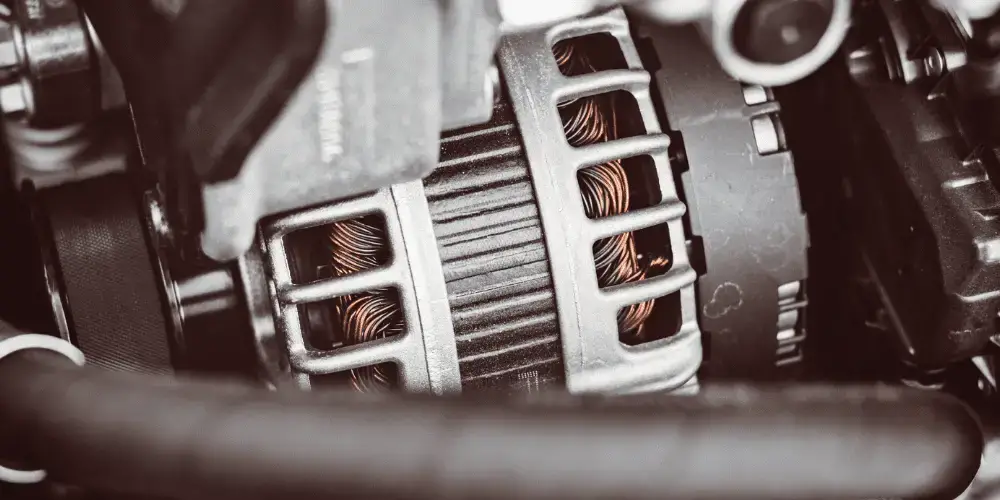
However, if all other causes have been checked and disregarded, it’s worth lifting the hood and getting close to the alternator to ensure it’s not the offending part.
Cause 7 – AC Compressor
The AC compressor can make a grinding noise if contaminants are in the lines. The noise should be audible when the AC is on and not just under acceleration.
If you’ve checked everything else, it’s worth turning off the AC to see if the grinding noise you’ve been hearing goes away.
Cause 8 – Clutch Disc
The clutch slipping can make a grinding noise under acceleration but generally only when you press down on the pedal or release it after changing gear.
If the noise is always present during acceleration, it’s very unlikely to be a clutch failure causing the problem.
Cause 9 – Water Pump
Finally, the water pump can make a grinding noise, too – you may struggle to hear it as it’s usually faint. As with the other more unlikely causes, it’s normally present at all times and not just during acceleration. This makes it very unlikely to be the reason.
In Summary
Wheel bearings and bad CV joints are the most likely causes of a grinding noise when picking up speed in your car. The next likely cause will be worn engine mounts, especially if the noise is louder when turning at the same time as accelerating.
This is caused by more weight being placed on one side of the front of the car. If you’re confident in jacking the car up and supporting the engine while undoing the bolts, this is a simple job.
These fixes can be done by a novice car DIY’er – especially the wheel bearings – and don’t require expensive specialist tools to do the job.
The differential is next on the list. A competent DIY mechanic with the confidence to get more involved under the car can do this job. It can take several hours, though.
Finally, a transmission issue is the job of a mechanic in a workshop. It’d take a brave DIY’er to tackle this job at home.
It’s not unusual for brakes to grind when first fitted. This shouldn’t continue for more than 100 miles
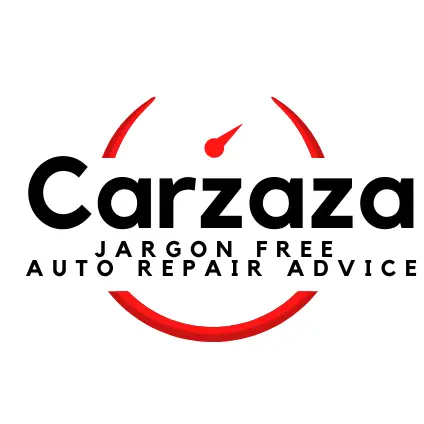

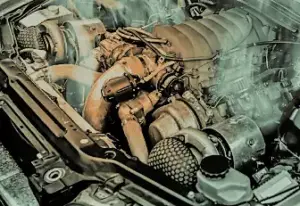
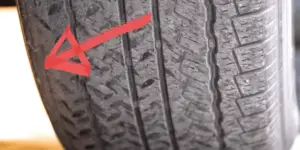
![Why Your Car Makes A Noise When Turning Right [ANSWERED] Untitled-design](https://carzaza.com/wp-content/uploads/2023/12/Untitled-design-300x127.png)
